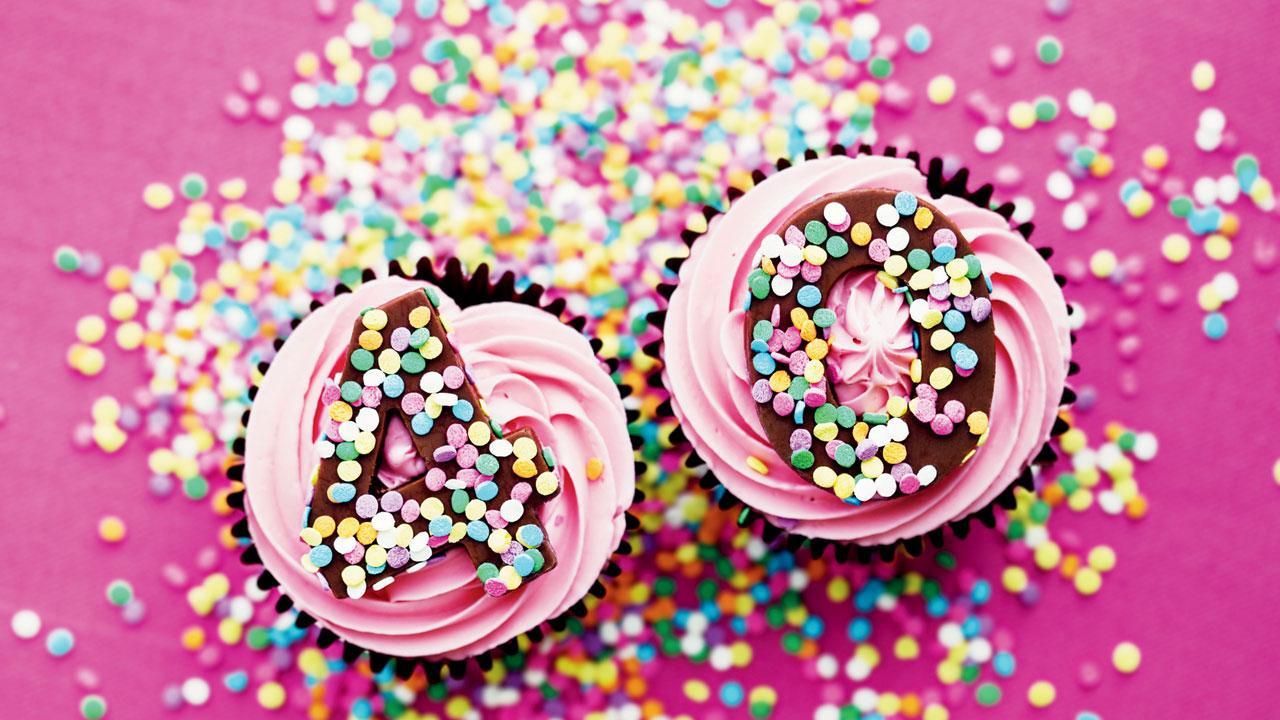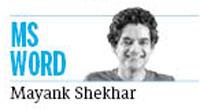Is there such a thing as mid-life, when nobody quite ever knows how many years they have up ahead anyway?

Age is a tricky thing; it’s not just a number and perspectives on such matters change with gender, too
 In this delusional myth making about how 30s are the new 20s; 40s, the new 30s; and so on, I feel for 10-year-olds, who must now return to their wombs! That said, is there such a thing as how old you feel in your head, even if the body doesn’t physically match up to the mental speed/agility?
In this delusional myth making about how 30s are the new 20s; 40s, the new 30s; and so on, I feel for 10-year-olds, who must now return to their wombs! That said, is there such a thing as how old you feel in your head, even if the body doesn’t physically match up to the mental speed/agility?
ADVERTISEMENT
And just as you strictly identify yourself with any pronoun you like—he/she, her/him, an object, or animal—can we similarly declare ourselves publicly for whatever age we wish (to feel)?
What would you prefer to be—40s forever, when knowing more about life brings with it an equally strange realisation of how little you do? Or about half that age, when you often sense superiority towards the world, because you simply don’t know better?
Are you outwardly just a FOMOsexual, perennially living with the fear of missing out, who’s moved on from :-) for a smiley in WhatsApp sign-language—choosing from a wide palette of emojis instead, or conversing in GIFs altogether?
Is the actual 5G vocabulary expanding likewise? So you know what ‘cheugy’ means—GenZ for someone out of date, but trying too hard. Its ancient synonym is ‘ankal’ probably—the uncomfortable aspect of a generation gap being someone desperately trying to bridge it, basically. Do you pick up the latest music only to name-drop and feel like you always belong? Or is that retro playlist just fine too, for contentment=confidence, period.
Age is a tricky thing, no? Of course it’s not just a number. Perspectives on such matters change with gender too. Foremost, I guess, it depends on what you look/feel like to those around—the appearance, as it were. Surely there is first the luck of the (genetic) draw—starting with the head, if there is a thick mop, or the hair receding into a map, of twin islands, and thinly connecting bridges. But being bald is absolutely cool, too.
The lines on your face, maybe, tell a fuller story—of what all you’ve been through, or where you are in the present. Stage, more so, suggesting age; sometimes much younger/older than you visibly are—whether married multiple times, or devotedly dealing with never-ending lists of debts/dependents, or wholly single, or lifelong DINKS (double income, no kids)…
Hardly two people at a school reunion seem from that same class anymore. They also think differently about age—perhaps their profession, too, determines some of that innate sense of time? You professionally peak at 70+ in Indian politics and classical music, for instance. And you could’ve spent half your life retired from a primary passion by then, if a sportsperson instead.
Writer Javed Akhtar once told me he just thinks people in the arts/entertainment age better in general. As against those with more repetitive vocations? There is obviously the upgraded science behind diet/fitness, access to weather-defying comforts, and leisure to automatically reverse some inherent ageing. You only have to look at old family albums to tell how we appear better than equivalent ancestors.
Either way, authors of the bestseller on ageing, Ikigai, researched Japan’s inordinate number of centurions to report that, really, it’s our immersive, physical and mental engagement with stuff (that we create or enjoy) that keeps us ticking, that explains a healthy/satisfying life. As opposed to a consequent long life alone, in their case.
As it is, nobody knows how long they’re going to live—the variables often being beyond human control. How then did we arrive at 40s as midlife? Should age then not be guided by how many years we have left, after a point—rather than how old we are? To be able to tell how much to save, live it up, or give away?
Of course I mean mid-life in the context of the glass being half full, and half empty. Whether expressed as a sign of maturity (finding oneself, finally), or ‘mid-life crisis’—that you relook at all previous presumptions, about career, family, friends, to the red Ferrari. Did Indians call 40s midlife, when the average person popped it at 32 (being the life expectancy), in 1947?
I ask this surrounded by friends (given my own vintage) celebrating their big Four-O birthdays (within/outside the city), one after another. Perhaps treated by guests as the end of the host’s final lap of youth, as against ‘coming of age’ that has multiple denominations: 16, 18, 21, 25, even 30. Is 40th that last big one you announce then? The 30th anyway is the end of 20s, when you’ve only about graduated from Old Monk and McDonald’s for a celebration!
I ask around why I don’t similarly hear of huge 50th and 60th birthdays, displayed with greater scale/grandness/fervour. No answer. Is that nothing to be as gung-ho about? Do we fear irrelevance/obsolescence after a point, although we share the planet, occupying equal space with the young while alive, regardless? No answer (yet).
Here’s what I don’t get about age, the most, though: Those who sheepishly/endlessly complain about how old they are—and it doesn’t matter how old they actually are. Well the other option was you were dead, no? What’s the complaint! Okay just invite me to your 50th or 60th, seriously waiting.
Mayank Shekhar attempts to make sense of mass culture. He tweets @mayankw14
Send your feedback to mailbag@mid-day.com
The views expressed in this column are the individual’s and don’t represent those of the paper.
 Subscribe today by clicking the link and stay updated with the latest news!" Click here!
Subscribe today by clicking the link and stay updated with the latest news!" Click here!







